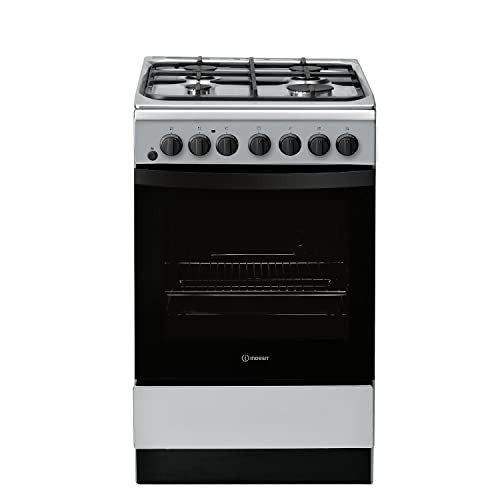Sales Ovens: 11 Thing You're Forgetting To Do
The Comprehensive Guide to Sales Ovens: Understanding Their Importance, Types, and Best Practices
Sales ovens, a category of industrial cooking equipment, are essential gamers in the culinary and foodservice industry. These devices, created to prepare food in large amounts efficiently, are essential in dining establishments, catering services, and other food facilities. This short article explores the significance of sales ovens, their types, and best practices for picking and utilizing them efficiently.
What Are Sales Ovens?
Sales ovens, broadly specified, are cooking gadgets used primarily in commercial cooking areas to cook, bake, or heat different food products at scale. Their design enables them to deal with higher volume cooking compared to standard property ovens. Given the nature of food service, sales ovens often integrate advanced innovations that promote speed, performance, and even cooking.
Importance of Sales Ovens in the Food Industry
Sales ovens play a critical role in food production for many reasons:
- Efficiency: Sales ovens can prepare food more quickly and equally than standard ovens, permitting chefs to prepare meals in less time.
- Consistency: With exact temperature controls, sales ovens ensure that the food is cooked equally each time, preserving quality throughout countless portions.
- Adaptability: Many sales ovens can manage numerous cooking approaches consisting of baking, roasting, broiling, and even steaming, making them ideal for diverse menus.
- Energy Savings: Modern sales ovens are typically created to be energy-efficient, reducing functional costs for services.
Types of Sales Ovens
The marketplace offers a variety of sales ovens, each suited for particular cooking requirements and types of food. Here are the most common types:
Type of Oven
Description
Best For
Convection Ovens
Employ a fan to circulate hot air, ensuring even cooking.
Baking and roasting items.
Combi-Ovens
A mix of convection and steam cooking, providing versatility in cooking methods.
Varied menus requiring steaming and baking.
Conveyor Ovens
Utilize a moving belt to continuously cook food, perfect for high-volume operations.
Junk food and pizza.
Deck Ovens
Feature separate compartments (decks) that can be independently controlled, offering high efficiency.
Craftsmen bread and pastries.
Rotisserie Ovens
Designed to slowly roast meat on a spit, supplying tender and juicy outcomes.
Roasted meats.
Selecting the Right Sales Oven
Picking the suitable sales oven for a specific company requires consideration of a number of aspects:
- Volume Needs: Assess the volume of food that requires to be prepared. Higher volume implies choosing conveyor or combi-ovens.
- Menu Diversity: Understanding what type of dishes will be cooked can guide the choice procedure. For example, a bakery might require a deck oven, while a restaurant may gain from a convection oven.
- Area Availability: Measure kitchen space to guarantee the ovens fit properly and have actually required ventilation.
- Spending plan: Commercial ovens can vary significantly in rate, so develop a budget plan that considers long-term operational cost savings.
- Energy Efficiency: Opt for ovens that have energy rankings to keep utility costs workable.
Best Practices for Using Sales Ovens
Effectively running a sales oven involves more than easy usage. Here are some best practices to keep in mind:
Regular Maintenance: Schedule routine upkeep to clean and inspect the functionality of the oven. This guarantees durability and performance.
Preheating: Always pre-heat the oven to the wanted temperature before putting food inside for constant cooking results.
Use Thermometers: For precision, use an oven thermometer to guarantee that temperatures remain constant, particularly for baking.
Follow Cooking Times: Adhere to recommended cooking times based upon the kind of food being prepared. Ovens Online might be necessary for various ovens.
Prevent Overcrowding: Ensure enough area around food products in the oven to permit proper air blood circulation.
The Future of Sales Ovens
As innovation advances, so do the capabilities of sales ovens. Innovations such as clever technology, energy-efficient designs, and enhanced security features are becoming more popular. These advancements promise to boost cooking efficiency while also satisfying sustainability goals.
FAQs about Sales Ovens
Q1: How do I tidy my sales oven?
A: Regular cleaning includes eliminating any food particles, wiping down surfaces with non-corrosive cleaners, and following specific cleansing suggestions from the producer.
Q2: What's the life-span of an industrial oven?
A: Typically, a properly maintained industrial oven can last anywhere from 10 to 20 years, depending on use and maintenance.
Q3: Can sales ovens be utilized for baking?
A: Yes, lots of kinds of sales ovens, specifically convection and deck ovens, are particularly developed for baking a series of items.
Q4: Are there energy-efficient choices for sales ovens?
A: Yes, several manufacturers provide energy-efficient models that lower energy usage without compromising efficiency.
Q5: How often should I carry out upkeep on my sales oven?
A: It's advisable to perform routine maintenance checks monthly or quarter, depending upon use levels. Furthermore, an extensive evaluation needs to happen a minimum of each year.
Sales ovens are important in the modern culinary landscape. Their ability to cook big amounts of food effectively makes them important for dining establishments, catering services, and other food establishments. By understanding the various types, picking the best oven, and adhering to best practices, food service companies can enhance their cooking procedures, improve their offerings, and eventually thrill their clients with impressive cooking productions.
